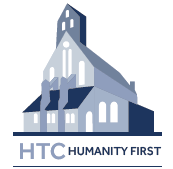1. Martial Arts – Rachael, Qamar and Imran
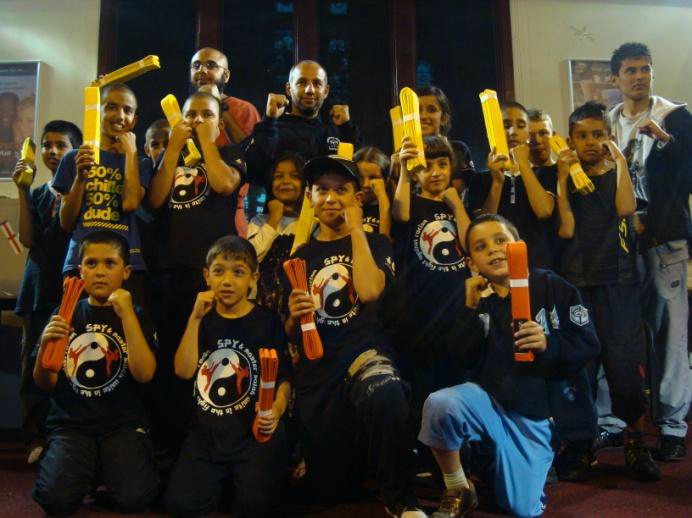 Our Martial Arts classes are for children and young people aged 5 years upwards. We meet twice per week, Tuesday and Thursday evenings, holding 3 different ability classes. Our aim is to break down barriers to participation by only charging £1 and for children to train in normal sports clothes (we provide all equipment). Through the support of Holy Trinity Church and Community Centre we have managed to continue delivering seamless provision for the past nine years. Initially we were supported and funded through the SPY programme but more recently we have been encouraged to take responsibility for our management and funding.
Our Martial Arts classes are for children and young people aged 5 years upwards. We meet twice per week, Tuesday and Thursday evenings, holding 3 different ability classes. Our aim is to break down barriers to participation by only charging £1 and for children to train in normal sports clothes (we provide all equipment). Through the support of Holy Trinity Church and Community Centre we have managed to continue delivering seamless provision for the past nine years. Initially we were supported and funded through the SPY programme but more recently we have been encouraged to take responsibility for our management and funding.
In the past year we have secured funding from Sports Relief and Forever Manchester towards our room hire costs. Most of our members live locally and reflect our diverse community, a high percentage being of Pakistani ethnicity including girls who are particularly hard to reach. We have on average 30 members at every session and hope to attract more with our banner advertising sessions.
Martial Arts is much more than fitness, we are like a big family and we take time to speak to all our families, breaking down barriers to participation. One of our members was an Asian girl who was in a wheelchair. She loved to come to our sessions and we adapted the activities so that she could fully participate. She suffered a stroke last year and lost even more of her strength and was nearly totally blind and too ill to attend. Then one day she came back, she had a smile on her face and brand new pink tracksuit and matching trainers. She never let her disability prevent her from training. Sadly, she recently died and we were devastated with the news. However, she was an inspiration to others with her positive attitude and big smile. She will be sorely missed.
Without the centre we would have nowhere to deliver the activities and the session will close.
Rachael Hill
We have also provided a case study relating to Qamar elsewhere in this evaluation as we believe his story illustrates very effectively the work which has been done over the years at Holy Trinity Church and Community Centre.
2. 17th Ashton Brownies and Rainbows
 Our group is very fortunate that we have wonderful help at Holy Trinity in accommodating us, helping us on our meeting night, getting out tables, chairs etc. and help promoting our group. On our 1st night we were given our own notice board, so we make sure we have a colourful display on it every week. We are a Rainbow & Brownie unit meeting on a Wednesday night for girls aged between 5 -11 years. Rainbows & Brownies are part of Girl Guiding which is a charitable organisation. Our activities include craft, games and many other different challenges & we do badges.
Our group is very fortunate that we have wonderful help at Holy Trinity in accommodating us, helping us on our meeting night, getting out tables, chairs etc. and help promoting our group. On our 1st night we were given our own notice board, so we make sure we have a colourful display on it every week. We are a Rainbow & Brownie unit meeting on a Wednesday night for girls aged between 5 -11 years. Rainbows & Brownies are part of Girl Guiding which is a charitable organisation. Our activities include craft, games and many other different challenges & we do badges.
Girl Guiding is for Girls only & has been going for over 100 years. We aim for girls to have fun and develop their skills in many areas. We are part of a Worldwide family and celebrate this on our founder’s birthday – Lord Baden-Powell on 22nd February by holding Thinking Day celebrations.
We take part in activities organised by our Division in Ashton, we hold an annual Bowling night, Swimming Gala and most recently an orienteering event up at Silver Springs (near Stamford Park Boating Lake).
We are an inclusive organisation encouraging girls from all backgrounds to join and have fun with us. Unfortunately although we are a ‘girls only’ organisation, Girl Guiding is under represented in the Asian community, both girls & leaders.
Catherine King
3. Ashton Women’s Group
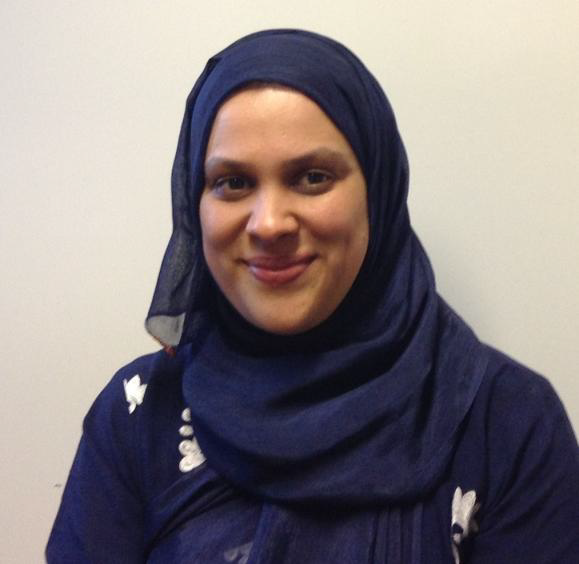 Ashton Women’s Group is a recent addition to the activities operating out of Holy Trinity Community Centre and was set up to help raise the profile of women in this deprived area of Ashton, where traditional culture in Pakistani and Bangladeshi families often keeps women in the home and oppressed in a very traditional role as home makers.
Ashton Women’s Group is a recent addition to the activities operating out of Holy Trinity Community Centre and was set up to help raise the profile of women in this deprived area of Ashton, where traditional culture in Pakistani and Bangladeshi families often keeps women in the home and oppressed in a very traditional role as home makers.
The Chairwoman of the group is Hasna who is a 35 year old Bangladeshi Muslim, although she has a white British grandmother. Born and brought up in Scunthorpe in a traditional Bangladeshi family, Hasna agreed to an arranged marriage when she was 18 years of age and came to live in Ashton when she married Kabir. The couple live in the Holy Trinity area and have four children.
In the past Hasna has done Skills Builder Courses in IT and Customer Services, an Interpreters’ Course and has worked in the Centre before for Sure Start and helped run an all girls’ group with Ashton All Stars. When Hasna’s sons were attending Holy Trinity Primary School, Hasna was always asking questions about their education and so was asked by the then Deputy Head if she would stand as Parent Governor on the Governing Body. Elected unopposed, Hasna has sat on the Governing Body ever since and is now the Deputy Chair. So when HTCCC committee was being set up with representatives of the various ethnic minority groups being sought, Hasna was asked to sit on the committee to represent the Bangladeshi community and women.
Because of her involvement with Holy Trinity Primary School, Hasna has come to realise how many children are presenting in nursery and reception with little or no English because their mothers cannot speak the language. Similarly meeting other mothers at school and amongst her friends both in the Pakistani and Bangladeshi communities, Hasna has come to realise just how limited in their social contacts and oppressed so many women in her community are. For many women, their husbands are so traditional that they control what their wives do and who they see and many of these women feel unable to challenge their husband’s views which means that they are unable to pursue their own interests, whilst still looking after their husbands, children and the home.
Therefore when Carl Kelsall, the Community Development Worker, suggested to Hasna that a women’s group could be set up in the community centre, approval of HTCCC committee was sought and the Ashton Women’s Group was piloted. Set up in November 2015 and fully constituted on 6th January 2016 with a committee of seven local women, Hasna then set about organising an initial meeting of the women in the area. She is well known in the community, popular and good at networking so was able to recruit about 40 women to attend, 60% of whom were Bangladeshi, 30% Pakistani and the rest were made up of Black, Kurdish and Gujarati women. At the first meeting the women were asked to prioritise their needs and identified ESOL (English for Speakers of Other Languages) classes, Computer/ICT training and child care (to free them up to study) as the main priorities. However with limited funding available it was not possible to set up a full creche facility but what could be offered were ESOL classes, ICT Training and a Mums and Tots’ group called “Stay and Play.”
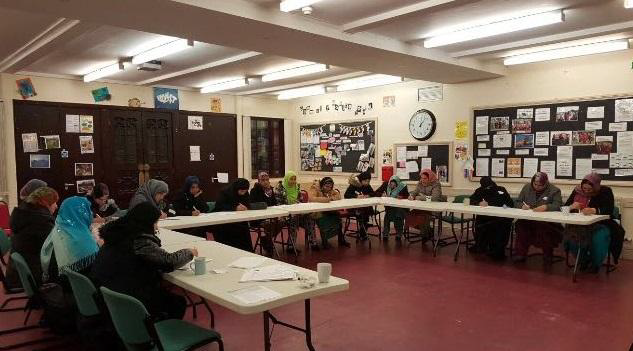
ESOL Classes
On behalf of the women in the community, HTCCC put in a bid to CVAT (Community Voluntary Action Tameside) – now known as Action Together since its amalgamation with Voluntary Action Oldham, a neighbouring town – for money to set up an ESOL course in the community. The bid was successful and £500 was made available to AWG to set up the training.
The ESOL classes were initially organised through the WEA with numbers limited to 20 women by the WEA and given that crèche facilities could not be offered, the women with preschool children were automatically excluded. The classes were held in the community centre because it is in the heart of the community and the women felt confident enough to attend somewhere so local to their homes. Unfortunately after only 5 weeks, the WEA had to withdraw and so the classes were taken over by the sister of one of the committee members and ran for another 10 weeks as originally planned. They were a huge success and AWG now has a waiting list for future ESOL classes. It is hoped that if the current bid is successful, there will be money available to set up a properly staffed and equipped crèche facility in the community centre to free up mothers with younger children to study, who will be reassured that their children are being properly cared for in the same venue.
Computer/ICT Training
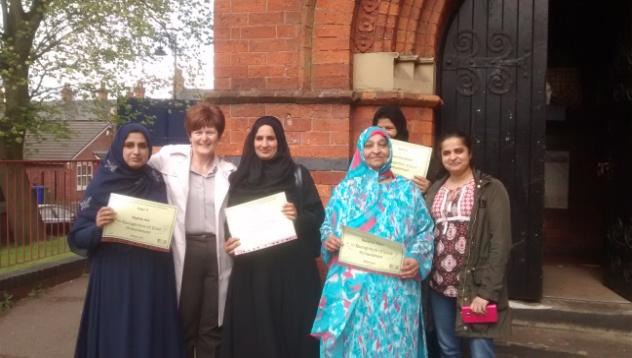 Computer training was already available locally at the St Ann’s Centre through the Tameside Adult and Community Education Service but because the women in the Holy Trinity area lacked the confidence to step out of their own community and more importantly lacked the language skills to participate fully in the training, it was negotiated that St Ann’s would provide a tutor to teach the women in the community centre. The course was limited to 8 women because of the needs of the women who had never used a computer before and had little or no English. Once more this proved to be a huge success. The women felt confident in a venue they had already been to before for the inaugural meeting of AWG and ESOL classes and Hasna (Bangla speaking), Razia (a local Urdu speaking woman) and Guytri (treasurer of AWG and fluent in Gujarati) were able to act as interpreters.
Computer training was already available locally at the St Ann’s Centre through the Tameside Adult and Community Education Service but because the women in the Holy Trinity area lacked the confidence to step out of their own community and more importantly lacked the language skills to participate fully in the training, it was negotiated that St Ann’s would provide a tutor to teach the women in the community centre. The course was limited to 8 women because of the needs of the women who had never used a computer before and had little or no English. Once more this proved to be a huge success. The women felt confident in a venue they had already been to before for the inaugural meeting of AWG and ESOL classes and Hasna (Bangla speaking), Razia (a local Urdu speaking woman) and Guytri (treasurer of AWG and fluent in Gujarati) were able to act as interpreters.
All the women who attended are keen to progress their training and there is a waiting list for a beginners’ course. Moreover there is an agreement in place for future provision to be organised in this way.
Stay and Play
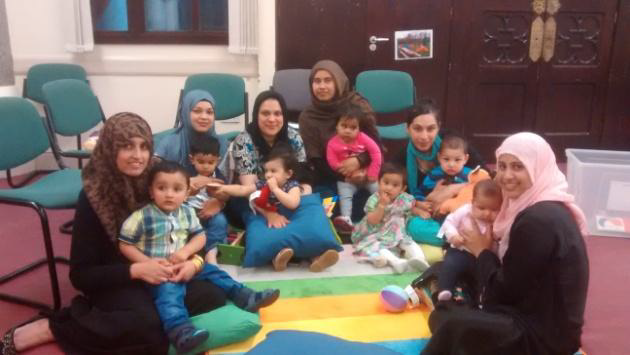 As already stated, there has been insufficient funding to date to provide a fully equipped crèche facility, with properly trained staff, in the centre to enable mothers with young children to attend the classes on offer. But the committee of AWG also recognised the need to provide some kind of Mums and Tots facility in the community centre to address the needs of the young children who are presenting at Holy Trinity Primary School and are in no way ready for school. The children have little or no English, lack confidence, are shy and reserved and have few socialisation skills. Therefore the committee decided to set up a “Stay and Play” group in the centre where Mums could socialise with other mothers in the area and learn basic English whilst playing with their children, who in turn would be socialising with other children outside of their families. The AWG committee applied to CVAT for funding to “kick start” this initiative. Having been awarded £500 for this, they spent £200 on toys to equip the group for play and the remaining £300 paid for 20 hours of support from a worker from LEAP Children and Families Centre, part of St Peter’s Partnerships, to help them set up and run the project.
As already stated, there has been insufficient funding to date to provide a fully equipped crèche facility, with properly trained staff, in the centre to enable mothers with young children to attend the classes on offer. But the committee of AWG also recognised the need to provide some kind of Mums and Tots facility in the community centre to address the needs of the young children who are presenting at Holy Trinity Primary School and are in no way ready for school. The children have little or no English, lack confidence, are shy and reserved and have few socialisation skills. Therefore the committee decided to set up a “Stay and Play” group in the centre where Mums could socialise with other mothers in the area and learn basic English whilst playing with their children, who in turn would be socialising with other children outside of their families. The AWG committee applied to CVAT for funding to “kick start” this initiative. Having been awarded £500 for this, they spent £200 on toys to equip the group for play and the remaining £300 paid for 20 hours of support from a worker from LEAP Children and Families Centre, part of St Peter’s Partnerships, to help them set up and run the project.
To advertise the project, the women of the committee produced a leaflet and then distributed it at school and amongst the community. Once more this has been highly successful, demonstrating the need for such a project and currently about 19 Mums attend the group – 10 Pakistani parents, 6 Bangladeshi, 2 Gujerati and 1 South Indian who between them have about 21 children. The women now feel confident to run the group on their own without the services of the LEAP worker.
Speaking for the Ashton Women’s Group, Hasna states, “We know there is a need (for the services we are now providing) because we know these women. And because they can’t speak English, they are so limited in what they can access. And even those who can speak English are isolated. But the lack of English impacts on the children – their kids are reserved, lacking in confidence and don’t know how to socialise. We want everyone to have the same opportunities, to feel involved, confidence levels to be raised and we don’t want the children to be disadvantaged.”
What has been so important to the Ashton Women’s Group is that they are now enabling the women of the community to step out of their homes into a safe and welcoming environment in the community centre. There they can learn new skills which should help them to play a more active role in their children’s education as well as in the centre and community and perhaps ultimately, in the workplace.
4. Neonatal Knitters
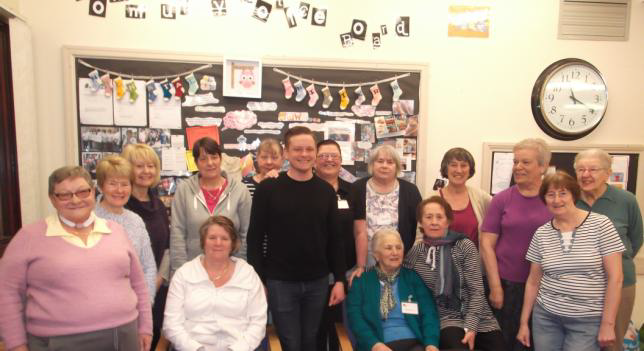 Neonatal Knitters are a local community group who knit, crochet and sew for the Neonatal Units of Tameside, St Marys’ and Oldham hospitals. We meet at Holy Trinity Community Centre weekly and have approx. 25 ladies attending each week. Our ages range from 17 (during college holidays) to a 90 year old lady who celebrated her birthday with us last year. We are a very diverse group with ladies from England, Southern Ireland, Scotland, Pakistan and Italy.
Neonatal Knitters are a local community group who knit, crochet and sew for the Neonatal Units of Tameside, St Marys’ and Oldham hospitals. We meet at Holy Trinity Community Centre weekly and have approx. 25 ladies attending each week. Our ages range from 17 (during college holidays) to a 90 year old lady who celebrated her birthday with us last year. We are a very diverse group with ladies from England, Southern Ireland, Scotland, Pakistan and Italy.
Some of our members have physical disabilities and some have mental health issues – both to varying degrees, and Holy Trinity Community Centre offers a safe, warm, welcoming and friendly environment in which we all feel safe. This is the only venue in Ashton which can offer us a room large enough for our group, storage for the items we produce, the opportunity to interact with other diverse user groups and a central meeting point easily accessible to all at an affordable cost.
The staff at the Centre are always helpful and nothing is too much trouble for them, be it on a weekly basis or when arranging Fun Days for the community.
Sue Carringan
5. Tameside Elders
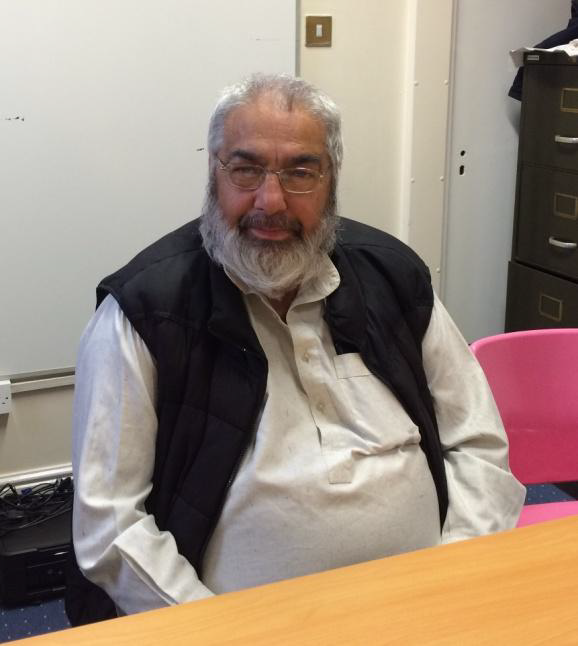 Tameside Elders – a men’s group – has been meeting in Holy Trinity Community Centre for the past 10 years. 61 year old Qurban is one such elder. He came to Britain from Pakistan aged 10 years, had an arranged marriage and has brought up 6 children here. He worked hard, initially in the mill, then in an industrial launderette and latterly for a garden furniture manufacturer to raise his family, until ill-health forced an early retirement. Qurban has been attending the Centre for about 6 years and was proud to become Chairman of Tameside Elders. However he had to step down when his lack of literacy skills precluded him from making the necessary grant applications to ensure the continuance of the group. It is a sadness to Qurban that no grant funding has so far been forthcoming since the new Chairman took over.
Tameside Elders – a men’s group – has been meeting in Holy Trinity Community Centre for the past 10 years. 61 year old Qurban is one such elder. He came to Britain from Pakistan aged 10 years, had an arranged marriage and has brought up 6 children here. He worked hard, initially in the mill, then in an industrial launderette and latterly for a garden furniture manufacturer to raise his family, until ill-health forced an early retirement. Qurban has been attending the Centre for about 6 years and was proud to become Chairman of Tameside Elders. However he had to step down when his lack of literacy skills precluded him from making the necessary grant applications to ensure the continuance of the group. It is a sadness to Qurban that no grant funding has so far been forthcoming since the new Chairman took over.
Qurban is keen to point out that the group is not exclusively for Pakistani Muslim men – any older men are welcome – although they (Pakistani Muslims) constitute the current membership. At one time there were about 35-40 men attending the group but as some have passed away, some have become too ill to attend and some have returned to Pakistan, they have not been replaced and currently about 15 men attend the group. It has been necessary recently to increase the men’s contributions for attending the group from £1 per session to £2 per session and Qurban considers this may partially account for falling numbers.
Tameside Elders is essentially a social group that meets in the Centre once a week on a Thursday to play cards, eat together and share news of what is going on in their own families as well as in their Mother country. At one time the group was able to meet 3 x per week but as the recession began to bite and grant funding was withdrawn, this was reduced to twice weekly and then to weekly. Qurban is very grateful to the generosity of Holy Trinity which enables them to have accommodation cheaply. The men’s weekly contributions pay for the hire of the Centre and its facilities whereas a grant from Tameside MBC enables the group to buy in food. This grant has now been withdrawn and so present reserves mean that the group has only about another 6 months to run unless new funding is obtained.
Qurban cannot emphasise enough what it means to the older men in the area to be able to meet up in the Centre weekly. It has proved to be a life-saver for many of them because for the rest of the week they are just sitting at home watching television. Time and again on arriving at the Centre, the men remark, “Thank God we are here” and after Mosque on Friday, they are counting the days until the next Thursday. In Qurban’s opinion it would be a disaster for the group if the Centre were no longer available to them. He also commented on the valuable resource the Centre is for family functions – two of Qurban’s daughters using it for their wedding receptions.
Qurban was keen to emphasise that there is on awkwardness for Tameside Elders in meeting in a church building and indeed as we were speaking together, the strains of a hymn could be heard as Holy Trinity’s congregation met for their weekly Evening Prayer.
6. Ashton Youth Club (AYC)
Ashton Youth Club which runs in Holy Trinity Community Centre two nights per week and Katherine Street Mosque one night per week is an outreach project of the Lindley Educational Trust and funded by Children in Need. This pays for the rent of the hall and staff wages. It was set up early last year by the Trust when it was recognised that there was the need for youth provision in this deprived area of Ashton. It is managed by Adnan and run by three young graduates – Nayaab, a Pakistani woman aged 22 years with a degree in Psychology and Sociology, Rehna, aged 23 years, a Pakistani woman with a degree in Childhood Studies and Aqib, a Pakistani man, aged 23 years with a degree in Business Studies.
Nayaab and Rehna are cousins and whilst Rehna is working as a teaching assistant in Stockport to gain some experience before applying for a PGSE course, Nayaab is currently considering her options. She may do a conversion course in Law as this is the degree she originally wanted to do but was dissuaded by her college tutors. Both girls have done a 9 month Gap Scheme with the Rank Foundation leading to a Diploma in Informal Education (youth work/youth provision). Aqib is uncertain where his future lies but is valuing this opportunity of working with young people. Initially recruited as volunteers, all three are now paid casual workers since the Children in Need funding was obtained. The youth club is called AYC, a name thought up by the young people who attend and clearly a play on the word “Ace”!
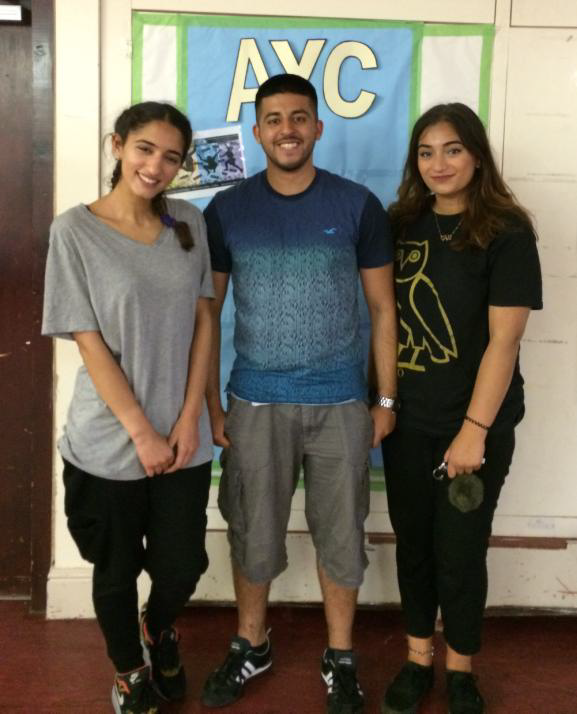 Nayaab, Rehna and Aqib attended SPY activities in the Centre when they were 15/16 years of age and really loved the opportunities that were on offer to them – going to the velodrome, doing a Winter Skills course (mountaineering, building shelters , learning how to use ice picks and crampons) and going to Morocco where they climbed the highest mountain in the Atlas range. Nayaab says it gave her the opportunity to mix with boys for the first time in a supervised setting which in turn increased her confidence and Rehna says it opened her mind to see what was on offer “out there”.
Nayaab, Rehna and Aqib attended SPY activities in the Centre when they were 15/16 years of age and really loved the opportunities that were on offer to them – going to the velodrome, doing a Winter Skills course (mountaineering, building shelters , learning how to use ice picks and crampons) and going to Morocco where they climbed the highest mountain in the Atlas range. Nayaab says it gave her the opportunity to mix with boys for the first time in a supervised setting which in turn increased her confidence and Rehna says it opened her mind to see what was on offer “out there”.
When the girls were attending SPY, Adnan was one of the youth workers and they greatly value what he did for each of them on an individual level as well as providing them with a positive male role model. They also very much appreciate what SPY did for them and so want to give back into the community what they took from Adnan and SPY. When the girls heard that SPY was closing, they were devastated but when they subsequently heard that a new youth initiative was being set up in the Centre they had no hesitation in volunteering even though they were both in their final year at university.
The current young people attending AYC are mostly boys from the Holy Trinity area, although two or three of Nayaab and Rehna’s young female relatives attend. The boys are a lively, boisterous group of lads who regularly test the boundaries by pressurising each other not to conform. This is possibly why the current group do not want their sisters to attend. But as Nayaab said, “If we are not going to give them a chance, who is going to give them a chance.” She feels that so many social settings do not accommodate children who do not fit the mould and that is where youth club comes in. It is hoped that by being consistently there for the young people, leading by example and offering them an interesting and varied programme of activities, some of them may come forward to be the “Grow Our Own” of the future, just as Nayaab, Rehna and Aqib are currently being grown by Adnan.
7. Bhutanese Welfare Association
The Bhutanese Welfare Association has just started to meet in Holy Trinity Community Centre. There are currently about fifteen Bhutanese households living in Ashton, three of which are Christian, some Buddhist but the majority are Hindu. The Bhutanese Welfare Association was created for those displaced Bhutanese families who were placed in the Manchester area five years ago, with other groups meeting in Doncaster and London.
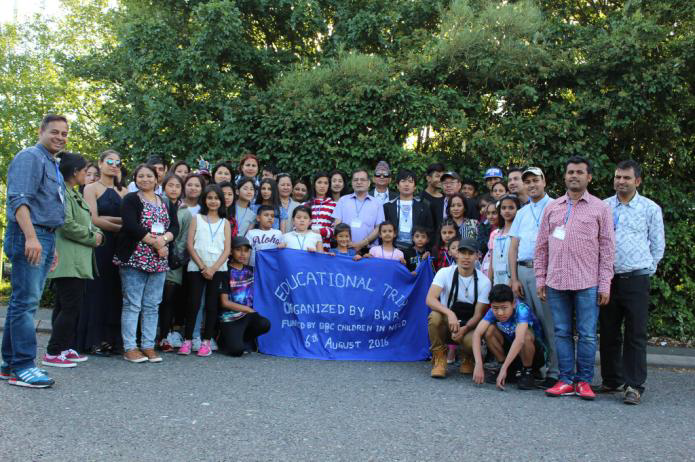 Refugee Action initially helped them with grant funding and they received a £500 grant from the Manchester Seed Fund, followed by a £3070 grant from the Big Lottery, awarded to enable them to preserve their culture. When this money was used up a grant of £10,000 was given by Children in Need in order that the association could teach their children their Mother tongue (Nepali or Dzongkha) and about their cultural inheritance.
Refugee Action initially helped them with grant funding and they received a £500 grant from the Manchester Seed Fund, followed by a £3070 grant from the Big Lottery, awarded to enable them to preserve their culture. When this money was used up a grant of £10,000 was given by Children in Need in order that the association could teach their children their Mother tongue (Nepali or Dzongkha) and about their cultural inheritance.
Accommodation has proved a difficulty for the BWA. Initially they used to meet in a Methodist Hall where they were also allowed to worship but then apparently “the rules changed” and they could no longer worship in the hall and the rental was drastically increased. They then met at St Peter’s Partnership’s LEAP project but when the rental of that room was increased, they moved to Holy Trinity at LEAP’s suggestion. It has been made very clear to the BWA that they are very welcome to meet in Holy Trinity for language classes and cultural activities but Hindu worship cannot be sanctioned in a consecrated C of E building.
Prem Giri is the spokesperson for the BWA in Ashton. He is aged 39 years and married with three children. His mother also lives with his family. He states that his family was evicted from Bhutan in 1992 when campaigning for democracy and human rights against the king who was a dictator. The family then spent almost two decades in a refugee camp in Nepal during which time Prem married and his children were born. He studied hard and became a teacher both in the camp and in a primary school in Nepal, Maths being his speciality. Then on humanitarian grounds, the UNHCR – the United Nations refugee agency – together with the International Organization for Migration arranged for many thousands from the camps to be resettled in the West, many families opting to go to America but Prem and his family came to England, directly to Ashton. He arrived here on 6th September 2010. Prem hoped to be a teacher in the UK but was unable to pass the test of “listening, speaking, writing” to enable him to do a PGCE course. (He has a heavy accent). He therefore decided to pursue a career in accountancy and did a Masters Degree at Sheffield Hallam whilst teaching accountancy to an ESOL class in Ashton. However, without expe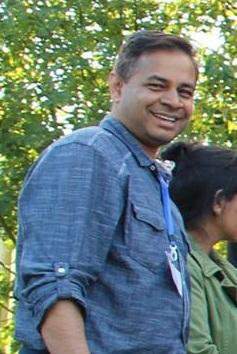 rience, Prem has been unable to secure employment in accountancy and currently works as a care worker at a residential care home in Ashton.
rience, Prem has been unable to secure employment in accountancy and currently works as a care worker at a residential care home in Ashton.
HTCCC has been able to offer Prem some voluntary work with the treasurer of the committee. Should this lead to his ultimate employment by a firm of accountants in Ashton, then hopefully, as a committee, we shall have been able to demonstrate our commitment to the ABCD methodology.
In the meantime, Prem is very happy that Holy Trinity has been able to offer accommodation to the Bhutanese Welfare Association. It is very important to him that the children have a safe, welcoming place to meet, in which they are able to learn their language and the respect that is inherent in Hindu culture. The ladies also are able to meet up from time to time, to dance and to sing – an important aspect of their culture.
8. Khush Amdid
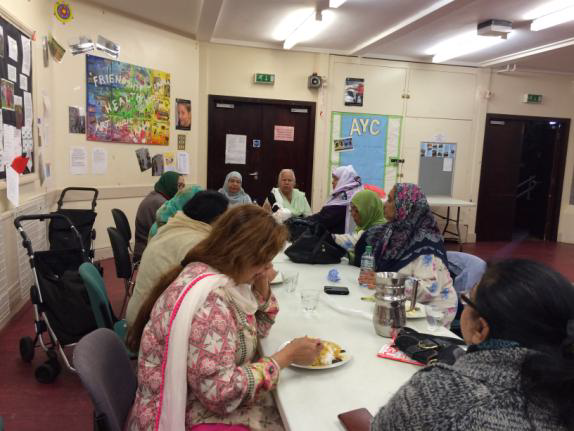 Khush Amdid – which means “Welcome” – is a registered charity and its information leaflet states it “is a user led multicultural organisation, which caters for the needs of the women in Tameside with the objective of improving their quality of life.” It currently caters for about 50 older Pakistani women, with an on average attendance of between 20-30 women attending each week. The organisers however are keen to point out that it is an inclusive group and would love to see white British and women from other ethnic minority groups attending.
Khush Amdid – which means “Welcome” – is a registered charity and its information leaflet states it “is a user led multicultural organisation, which caters for the needs of the women in Tameside with the objective of improving their quality of life.” It currently caters for about 50 older Pakistani women, with an on average attendance of between 20-30 women attending each week. The organisers however are keen to point out that it is an inclusive group and would love to see white British and women from other ethnic minority groups attending.
The idea of setting up Khush Amdid came from Mrs Sarwar Ibrahim, now aged 81 years. Many years ago Mrs Ibrahim was caring for her elderly mother and was advised that she would benefit from attending a luncheon club. However at the time there were only luncheon clubs for older Indian and British women and because of language difficulties, Mrs Ibrahim’s mother was prevented from going. When she passed away, Mrs Ibrahim resolved to correct this situation. She approached Age Concern who gave her a room at Cranbrook Gardens and a grant of £50 and so, as she puts it, “Khush Amdid was born”. Since then, Khush Amdid has had a chequered history moving from meeting at Cranbrook Gardens to Age Concern to West End Community Centre and then to Holy Trinity Community Centre as rent increases at other venues have been prohibitive. It has now been based in Holy Trinity for 15 years or more. Grant funding was initially forthcoming but as austerity measures have impacted, Khush Amdid is now self-funding and so is very grateful that HTCCC subsidises their rent. The women pay £4 per session to attend (Committee members – £5) as well as having to pay for Ring and Ride if they use this service. What is interesting is that family members of both Mrs Ibrahim and Mrs Rukhsana Ali (the vice-chair) have set up Direct Debits to enable their mothers to do the work they are doing because they like to see their mothers happy.
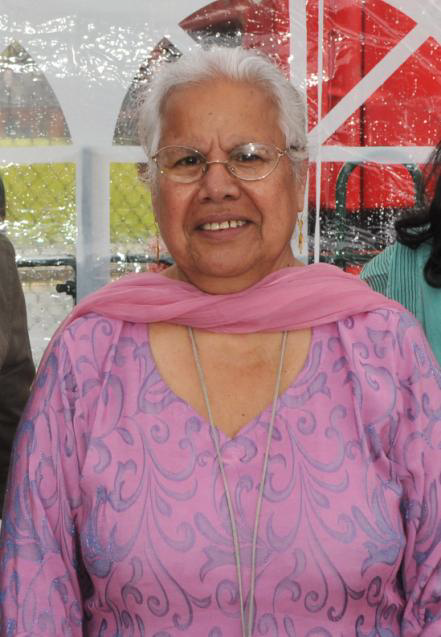 Mrs Ibrahim has just stepped down as Chair of Khush Amdid and has been replaced by a younger person Naila Shariff.
Mrs Ibrahim has just stepped down as Chair of Khush Amdid and has been replaced by a younger person Naila Shariff.
Khush Amdid prepares all of its food for the women’s lunch from fresh in the kitchen at Holy Trinity and as well as meeting to eat and socialise, which Khush Amdid recognises is good for mental health, “a healthy mind is a healthy body”, the women also benefit from exercise classes on offer. Mrs Ali cited one of their success stories – that of one woman who came suffering from high blood pressure. After several weeks of attending Khush Amdid, her blood pressure had corrected itself. It was Khush Amdid that had made the difference in her life! Khush Amdid also offers massage and sewing classes but as they have to buy in the services of women to run these sessions, they have now had to be limited because of lack of funding. Similarly they are no longer able to organise trips out for the women as they once did.
Mrs Ibrahim and Mrs Ali sincerely hope they are able to continue to meet at Holy Trinity Community Centre as it provides for a much needed resource for older women from ethnic minority groups in Ashton and beyond (some women travel in from Oldham, Denton and Hyde) . If funding is obtained and the Centre can remain open, they would like to take advantage of any training on offer – eg in Health and Safety and First Aid. In return they would like to offer Pakistani cookery classes to anyone who may be interested and they have offered to cook for the Tameside Elders group, aware that it will soon have no money with which to buy in food, stating, “They are our men, our brothers and as our culture donates lots to charity, why shouldn’t we?”
9. Shapla (translated from Bengali means water lily)
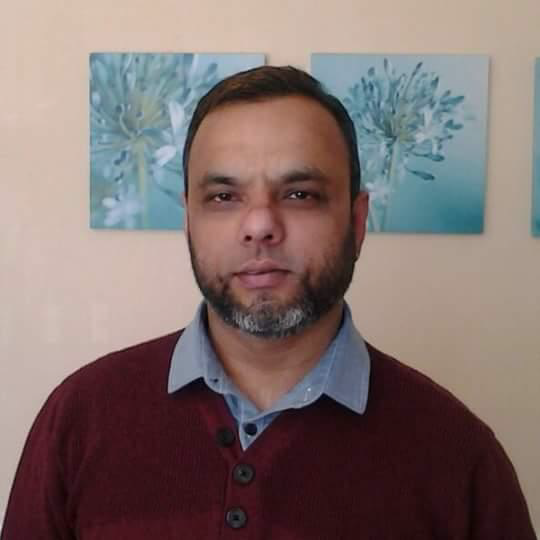 The Shapla project was set up by the Bangladeshi community in Tameside a year ago, its main aim being to work with the local community providing any help that may be needed by the community. Its members also do charity work more broadly eg bucket collections at local supermarkets for the Red Cross. The project is run by a committee of 7 people from their own homes and Sajjadur Rahman is the Vice Chairman.
The Shapla project was set up by the Bangladeshi community in Tameside a year ago, its main aim being to work with the local community providing any help that may be needed by the community. Its members also do charity work more broadly eg bucket collections at local supermarkets for the Red Cross. The project is run by a committee of 7 people from their own homes and Sajjadur Rahman is the Vice Chairman.
Sajjad is 45 years of age married with 5 children and he lives in the West End of Ashton. Born and brought up in Bangladesh, he graduated from university in Bangladesh with a science degree (not recognised in this country). He came to the UK in 1994 when he entered into an arranged marriage with the daughter of family friends and now works as a taxi driver. Possibly Sajjad is living out his aspirations/dreams through his children – his eldest son has just qualified as a solicitor and his eldest daughter has recently graduated with a degree in Bio Medical Sciences.
A firm believer in teaching his own children their mother tongue, Sajjad responded to a request from the local community 3-4 years ago to set up a Bangla language class, which he ran on his own. However it was hard to do this whilst working full time, so he gave it up. However once more responding to community pressure to start the classes again, Shapla was set up and the Tameside Bangla School was established. Lottery funding was obtained for 12 months to teach children aged 5-13 years to speak and write in their mother tongue. As Sajjad has known Carl Kelsall, the Community Development Worker, for some time, he approached Carl about holding the classes in Holy Trinity Community Centre. They have now been running in the centre for several months with around 30 children attending, taught by a female teacher employed by Shapla.
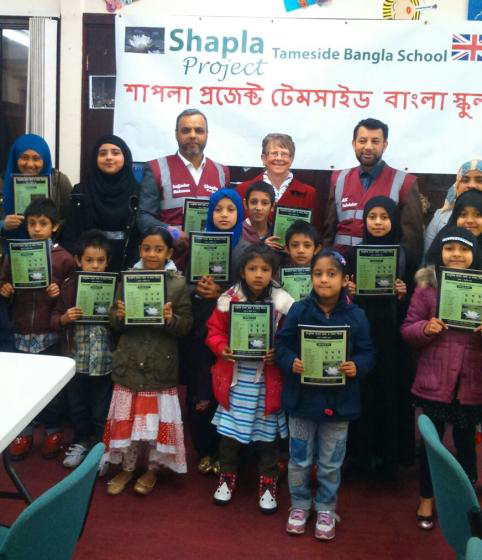 For Sajjad, Holy Trinity Community Centre is the ideal place in which to hold the classes, as it is in the heart of the community where most of the Bangladeshi people in Ashton live. He states that parents can walk their children to the centre to drop them off and as it is familiar to them, they feel confident that their children will be kept safe in this warm and welcoming place. Sajjad has a white British friend, Phil Buckley who is a retired police officer from Oldham. He has visited Bangladesh many times and can speak Bangla almost fluently. He has visited the centre to meet the children telling them, “If I can speak Bangla, so can you!”
For Sajjad, Holy Trinity Community Centre is the ideal place in which to hold the classes, as it is in the heart of the community where most of the Bangladeshi people in Ashton live. He states that parents can walk their children to the centre to drop them off and as it is familiar to them, they feel confident that their children will be kept safe in this warm and welcoming place. Sajjad has a white British friend, Phil Buckley who is a retired police officer from Oldham. He has visited Bangladesh many times and can speak Bangla almost fluently. He has visited the centre to meet the children telling them, “If I can speak Bangla, so can you!”
Sajjad very much hopes that Shapla can continue meeting in Holy Trinity once the Big Lottery funding runs out.
